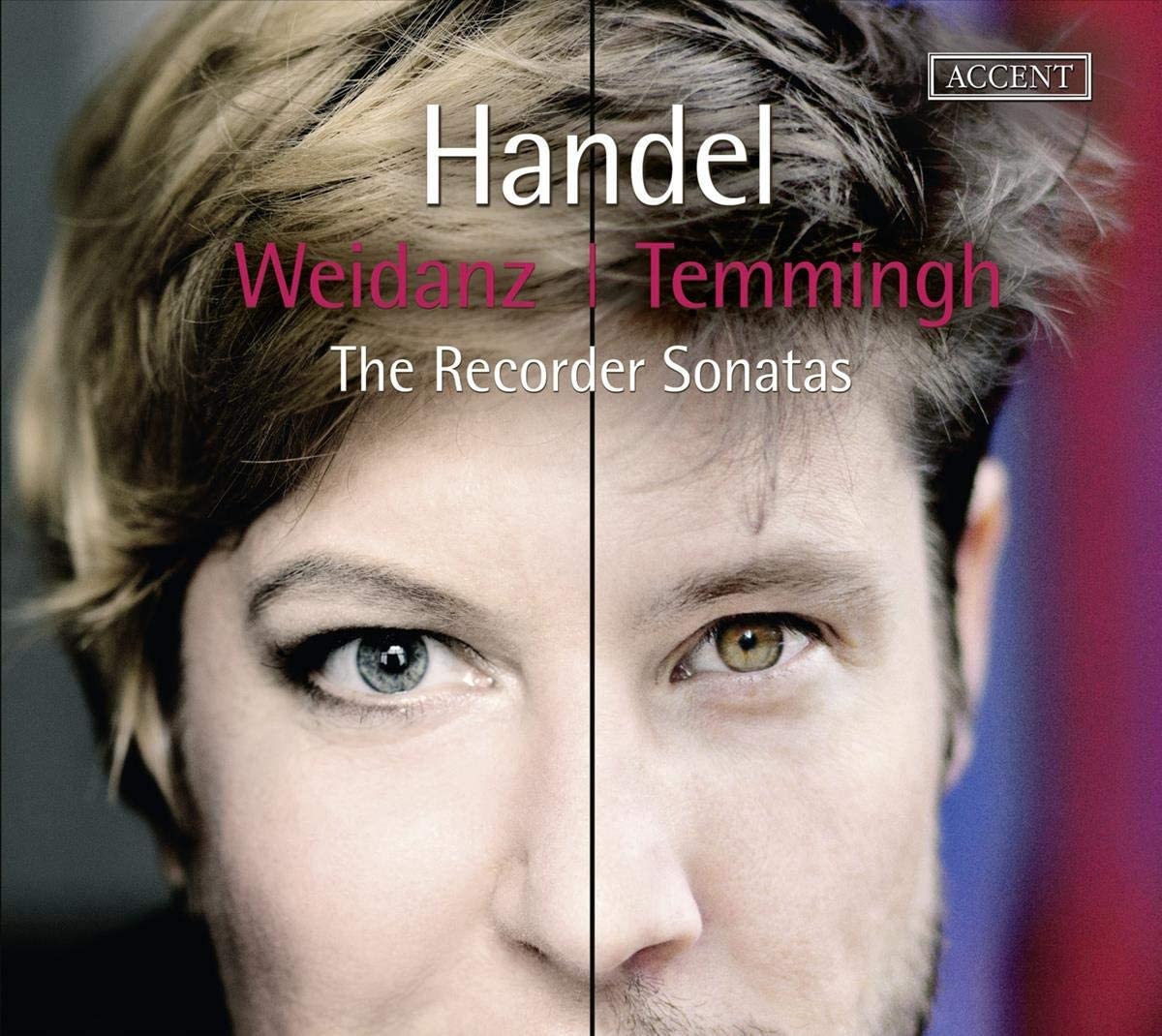[Wiebke] Weidanz, [Stefan] Temmingh
63:20
Accent ACC 24353
Click HERE to buy this on amazon.co.uk
This account of the six recorder sonatas by Handel, each one tastefully ‘set up’ by a short prelude, either a keyboard prelude by Handel or Purcell, an anonymous Fantaisie for solo recorder, or in one case an improvised flourish on recorder and keyboard, has many virtues. The playing of Stefan Temmingh on a trio of Bressan copy recorders by Ernst Meyer is flamboyant and imaginative, while the accompaniment of Wiebke Weidanz on a Taskin copy harpsichord by Matthias Griewisch is equally so. If the harpsichord is consistently recorded a little ‘closely’ and dominates the balance somewhat, this is quite possibly a reflection of the natural dynamics of both instruments, although some of the detail of the recorder playing in the lower register is lost. Temmingh is always keen to embellish, sometimes ornamenting the first playthrough of a section, sometimes improvising on even the opening statement, before departing even more radically into the realms of fantasy on the repeat. This will not be to everyone’s taste, but I found the approach on the whole engaging and entertaining, particularly as Weidanz was quick to reflect this exciting level of spontaneity in the keyboard accompaniment. There is certainly no denying the highly imaginative nature of this improvisation, which manages to sound both utterly compelling and completely convincing. The programme note is in the (for me) annoying form of a dialogue between the two performers, which is necessarily more about their approach to the music and its performance and recording than the historical/musicological background. However, we do learn that, as we might have suspected, Weidanz plays from the original figured bass, allowing her imagination to realise the keyboard part spontaneously in response to Temmingh’s account of the melody line. This is perhaps not the recording to buy for a no-nonsense account of Handel, but the playing is very impressive and thoroughly musical – and you can’t help feeling that this is the sort of approach the composer might have taken in performing his own music.
D. James Ross
